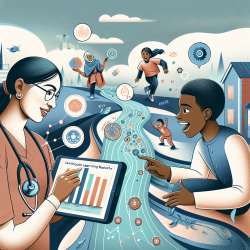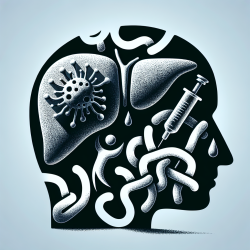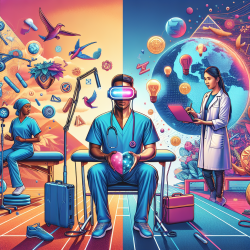As a Special Education Director, you are always on the lookout for ways to enhance the quality of services provided to your students. One effective way to achieve this is by leveraging the latest research findings. The ECR 2011 Book of Abstracts offers valuable insights that can significantly improve your online therapy practice.
In this blog, we will explore some key takeaways from the ECR 2011 Book of Abstracts and how you can implement these findings to better serve your students. We will also encourage you to delve deeper into the research to continue your professional growth.
Understanding the Research
The ECR 2011 Book of Abstracts provides a comprehensive overview of cutting-edge research in the field of radiology. While this might seem unrelated to online therapy at first glance, the methodologies and outcomes presented can offer valuable lessons for any practitioner looking to improve their skills.
Key Takeaways
- Data-Driven Decision Making: The research emphasizes the importance of data in making informed decisions. By collecting and analyzing data from your therapy sessions, you can identify patterns and make adjustments to your approach, ultimately leading to better outcomes for your students.
- Interdisciplinary Collaboration: The abstracts highlight the benefits of collaborating with professionals from different fields. In your role, consider partnering with other educators, therapists, and medical professionals to provide a holistic approach to your students' needs.
- Technology Integration: The use of advanced imaging technologies in radiology parallels the potential of integrating innovative tools in online therapy. Explore new software and platforms that can enhance your service delivery and improve student engagement.
Implementing the Findings
Now that we have identified some key takeaways, let's discuss how you can implement these findings in your online therapy practice:
1. Collect and Analyze Data
Start by setting up a system to collect data from your therapy sessions. This could include student progress, session attendance, and feedback from parents and teachers. Use this data to identify areas for improvement and tailor your approach to meet the unique needs of each student.
2. Foster Collaboration
Reach out to other professionals within your school district or even outside it. Create a network of experts who can provide insights and support. Regular meetings and collaborative projects can lead to innovative solutions and improved outcomes for your students.
3. Embrace Technology
Stay updated on the latest technological advancements in online therapy. Attend webinars, conferences, and workshops to learn about new tools and platforms. Implement these technologies to enhance your therapy sessions, making them more interactive and effective.
Encouraging Further Research
While implementing these findings can significantly improve your practice, it is essential to stay curious and continue your professional development. The ECR 2011 Book of Abstracts is just one resource among many that can provide valuable insights. Make it a habit to read research papers, attend conferences, and participate in webinars to stay informed about the latest trends and advancements in your field.
To read the original research paper, please follow this link: ECR 2011 Book of Abstracts - E - Authors’ Index










